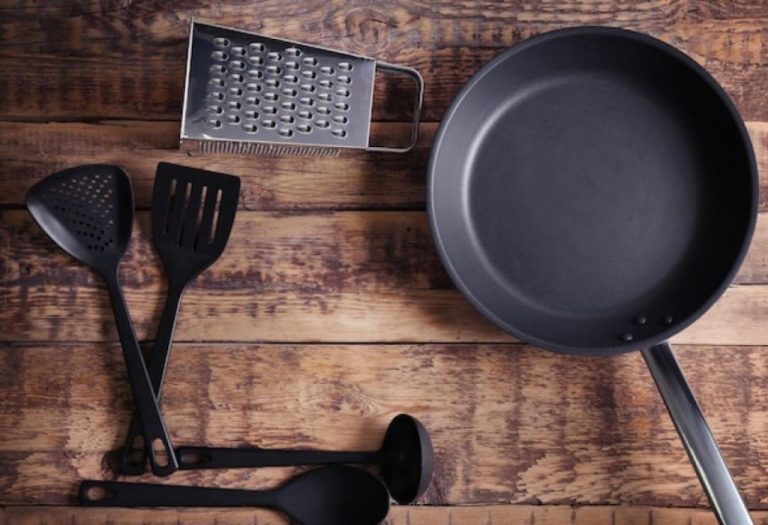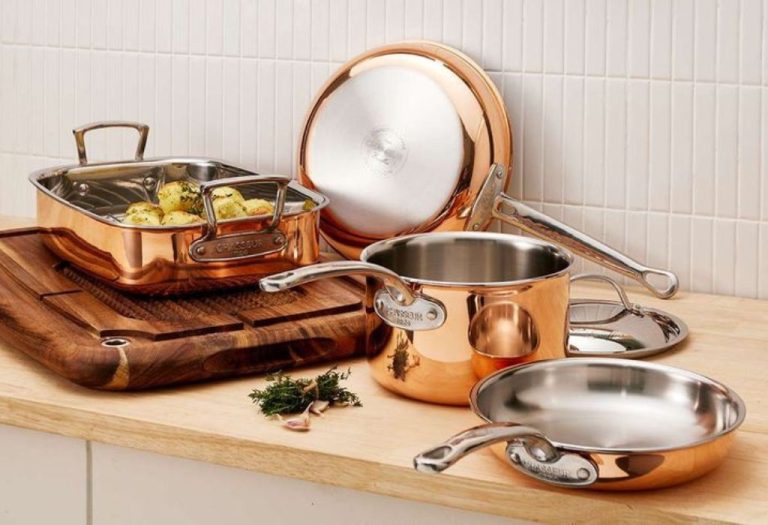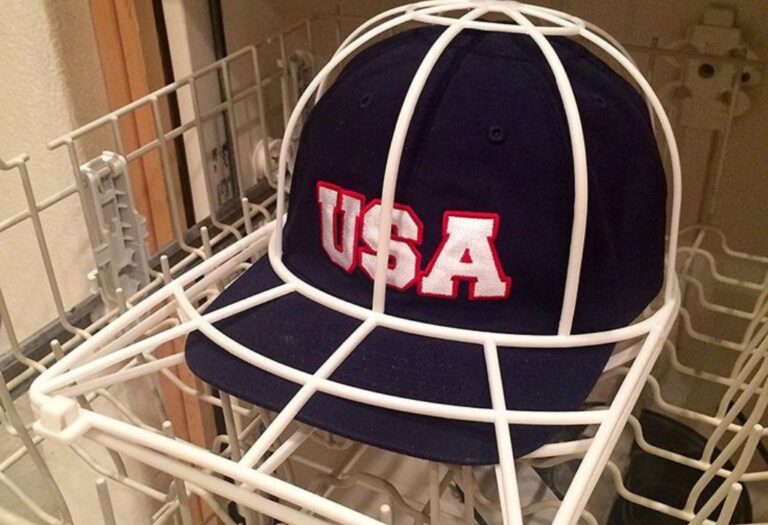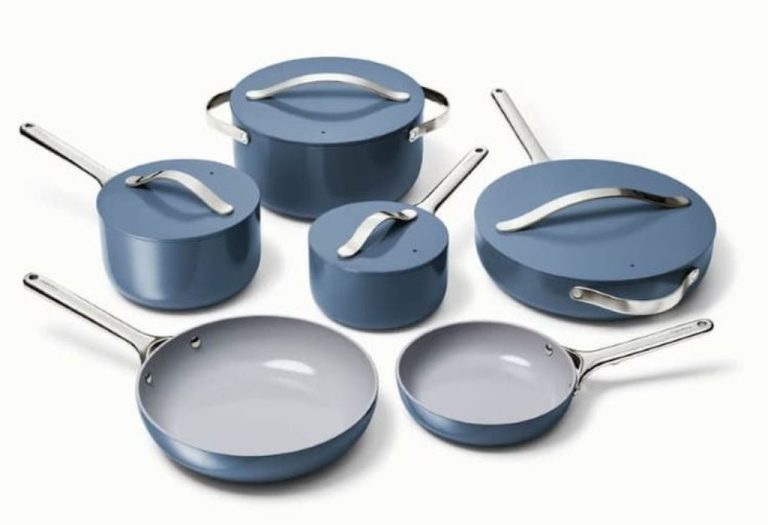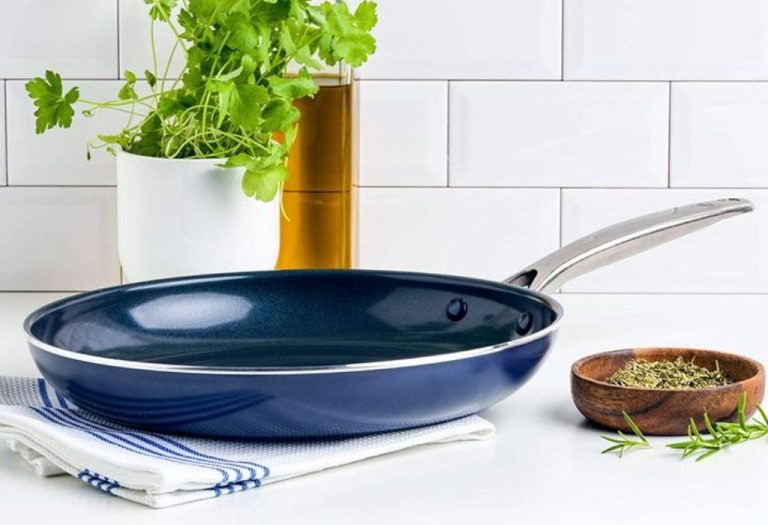Placing a favorite ceramic pan into the dishwasher may feel convenient, but the disappointment of discovering scratches, dull patches, or chipped edges is all too common. Many cookware labels proudly claim “dishwasher safe,” yet the reality often tells a different story.
The question is ceramic cookware dishwasher safe continues to spark confusion among home cooks. Some argue that fully ceramic pots can withstand machine cycles, while others warn that coatings deteriorate quickly under heat and harsh detergents.
Curiosity grows when studies reveal how quickly non-stick surfaces degrade in dishwashers. Research has shown that repeated exposure to strong cleaning agents can shorten non-stick lifespan by nearly 30% compared to hand-washing [source].
The problem extends beyond scratches or faded surfaces. Dishwasher environments combine high heat, powerful water jets, and abrasive detergents, which create the perfect storm for ceramic coatings to wear down faster than expected.
Yet the benefit of understanding proper care methods is clear. By learning how to clean and maintain ceramic cookware correctly, households can extend durability, preserve non-toxic finishes, and ensure healthier cooking.
Reports indicate that nearly 70% of premature non-stick damage originates from improper cleaning practices, particularly machine washing [source]. This statistic highlights the importance of knowing when the dishwasher is safe and when hand-washing is the smarter choice.
What Does “Dishwasher Safe” Really Mean for Ceramic Cookware?
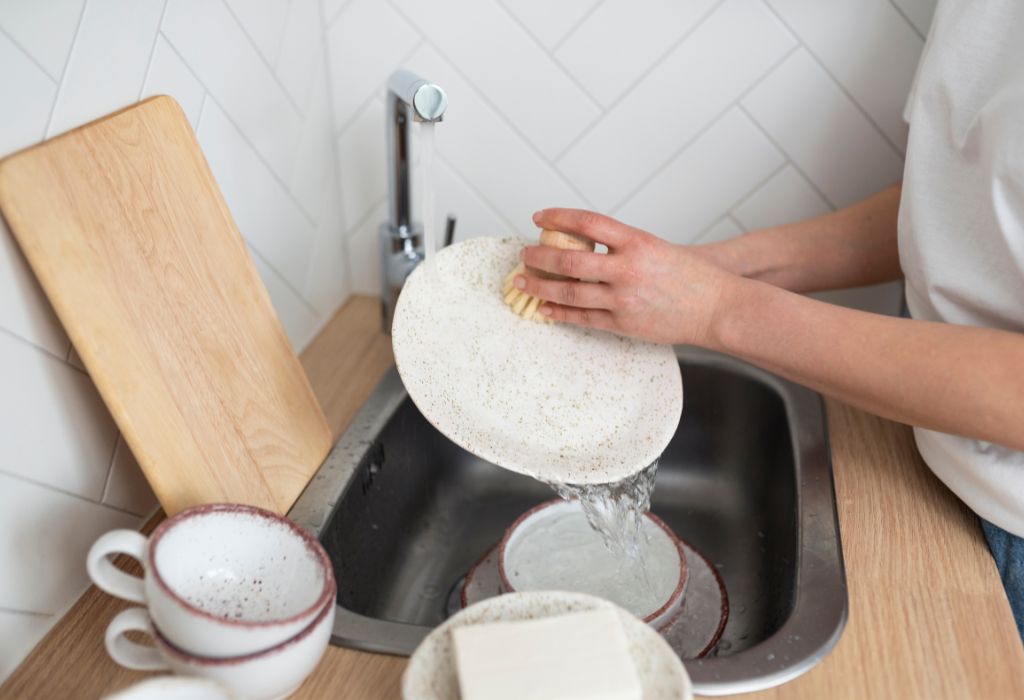
The phrase “dishwasher safe” often creates a false sense of security. In reality, it simply means the cookware can survive a few machine cycles without immediate visible damage.
Marketing labels rarely explain how heat, harsh detergents, and water pressure impact long-term performance. For ceramic cookware, especially with a delicate ceramic coating, those factors can gradually erode the non-stick surface.
Fully ceramic cookware and ceramic-coated pans are not the same. A 100% ceramic pot is kiln-fired and more resistant, while a ceramic-coated pan bonds the coating to a metal base, making it more vulnerable inside a dishwasher.
Even if cookware carries a dishwasher safe label, it does not guarantee longevity. The integrity of the coating and finish may still decline much faster compared to gentle hand-washing.
Q: What does “dishwasher safe” on ceramic cookware actually mean?
A: It means the item can go through cycles without immediate breakage, but coating damage may still occur over time.
Q: Are fully ceramic pans more resistant than coated ones?
A: Yes, kiln-fired 100% ceramic is stronger, though still not immune to dishwasher wear.
Q: Does a dishwasher safe label ensure durability?
A: No, it only reflects short-term testing, not long-term performance or coating integrity.
Q: Should consumers trust marketing claims alone?
A: No, always consider how detergents, heat, and water jets affect the surface before relying on labels.
Risks of Using the Dishwasher on Ceramic Cookware

Running ceramic cookware through a dishwasher may seem harmless, but the hidden risks can quietly shorten its lifespan. Each cycle exposes the surface to a combination of harsh detergents, high heat, and abrasive water pressure.
Dishwasher detergents often contain strong chemicals and enzymes that can strip away the smooth ceramic coating. Over time, this leads to a dull finish and a reduction in the non-stick qualities that make ceramic popular.
The intense heat used in dishwashers creates another challenge. Rapid temperature changes cause thermal shock, which can weaken the bond between ceramic layers or even create tiny micro-cracks.
Scratches and chipping are also common when pans collide with other utensils or racks inside the machine. These imperfections not only affect the appearance but also compromise durability and overall cooking performance.
Q: Can dishwasher detergents damage ceramic coating?
A: Yes, the harsh chemicals accelerate wear and reduce non-stick effectiveness.
Q: Does high heat inside dishwashers harm ceramic pans?
A: Yes, extreme heat can cause thermal shock and micro-cracks in the coating.
Q: Can scratches occur during dishwasher cycles?
A: Yes, collisions with utensils or racks often lead to scratches and chipping.
Q: Does regular dishwasher use shorten cookware lifespan?
A: Yes, repeated exposure reduces durability and makes pans wear out faster.
When Might the Dishwasher Be Acceptable?
Not every piece of ceramic cookware reacts the same way to dishwasher cleaning. Some fully ceramic items, especially kiln-fired or artisan-made, may endure the conditions better than ceramic-coated pans.
Manufacturers sometimes market all-ceramic products as dishwasher safe because they lack a bonded non-stick layer. These pots can handle more exposure, but frequent cycles still risk weakening the glaze or finish.
Ceramic-coated pans are far more sensitive. Even if the label suggests dishwasher safety, repeated washing can cause separation between the coating and the metal base.
Ultimately, while the dishwasher may be acceptable for sturdy all-ceramic cookware, experts still recommend hand-washing for long-term durability. Choosing the safer option can preserve the lifespan of both coatings and finishes.
Q&A Sub-Points
Q: Are fully ceramic cookware pieces dishwasher safe?
A: Some kiln-fired ceramics can tolerate dishwashers, but glaze damage remains possible.
Q: Do artisan-made pots resist dishwasher damage?
A: They may last longer, but delicate finishes are still better preserved with hand-washing.
Q: Is it safer to wash ceramic-coated pans in the dishwasher?
A: No, the coating is more vulnerable to chipping and separation.
Q: Should the dishwasher be used regularly for ceramic cookware?
A: No, occasional cycles may be tolerated, but consistent use reduces durability.
Expert Hand-Washing Techniques That Save Your Ceramic Cookware
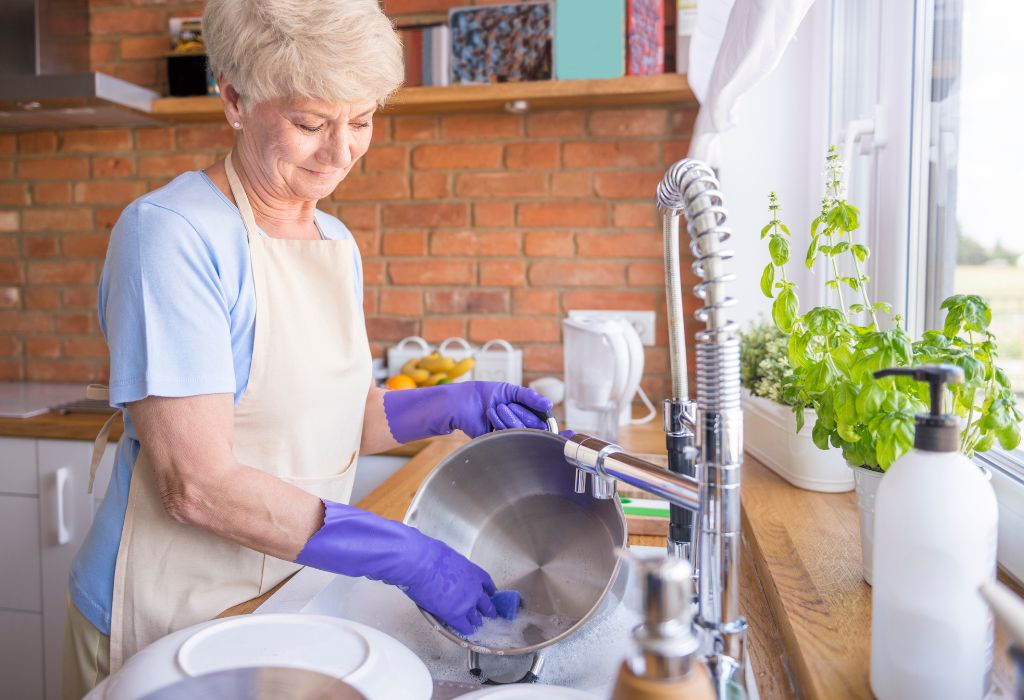
Hand-washing remains the safest way to clean ceramic cookware. It helps maintain coating integrity, prevents scratches, and extends overall durability.
The first rule is to let pans cool before cleaning. Plunging hot cookware into cold water can cause thermal shock, weakening the ceramic coating and leading to cracks.
Use warm water, mild dish soap, and a soft sponge or cloth for daily cleaning. This combination removes residue effectively without harming the ceramic surface.
Avoid abrasive scrubbers, steel wool, or harsh chemicals. These can strip the non-stick coating and leave permanent scratches on the finish.
For stubborn stains, a paste of baking soda and water provides a gentle scrub. Ceramic-safe cleaners are also effective options for maintaining the surface without causing damage.
Q: What is the safest way to clean ceramic cookware?
A: Hand-wash with mild soap, warm water, and a soft sponge.
Q: Should pans cool before being washed?
A: Yes, cooling prevents thermal shock and micro-cracks.
Q: What cleaning tools should be avoided?
A: Skip steel wool, abrasive pads, and harsh detergents.
Q: How can tough stains be removed safely?
A: Use a baking soda paste or ceramic-safe cleaner for gentle scrubbing.
Long-Term Care: Storage, Utensils & Avoiding Damage
Proper long-term care is essential for preserving the durability and lifespan of ceramic cookware. Small daily habits with utensils, heat, and storage can make the difference between years of use and early replacement.
The best utensils for ceramic cookware are silicone, wooden, or nylon tools. These materials prevent scratches and help maintain the non-toxic, PFAS-free ceramic coating.
Storage plays a major role in preventing damage. Stacking unprotected pans often leads to chipping and scratches, so soft cloth or paper towels should always be placed between items.
Another key practice is controlling heat levels during cooking. High heat may compromise the coating, while medium or low heat helps preserve the finish and extend performance.
Replacing cookware at the right time also ensures safety. Once the coating is chipped or peeling, it loses its protective surface and should be replaced to prevent leaching or uneven cooking.
Q: Which utensils are safest to use on ceramic cookware?
A: Silicone, wood, and nylon tools protect the non-stick surface from scratches.
Q: How should ceramic pans be stored to avoid damage?
A: Use cloth or paper towels between pans to prevent scratching or chipping.
Q: Does cooking on high heat damage ceramic cookware?
A: Yes, excessive heat weakens the coating and reduces lifespan.
Q: When should ceramic pans be replaced?
A: Replace them if the coating chips, peels, or loses its non-stick properties.
Future-Proofing: Trends in Ceramic Cookware & Cleaning Tech
Ceramic cookware continues to evolve with innovations that improve durability and resistance to dishwasher damage. Manufacturers are experimenting with stronger ceramic blends and coatings designed to maintain performance under harsher conditions.
One growing trend is the development of dishwasher-friendly ceramic coatings. These coatings aim to resist scratches, chipping, and fading caused by high heat and harsh detergents.
Smart dishwashers may also play a role in cookware care. Future models could feature gentler wash cycles designed specifically for delicate cookware surfaces.
Consumer demand for non-toxic and PFAS-free products is driving change as well. A recent report shows the global ceramic cookware market is projected to grow by 6.1% annually, with health and sustainability as leading factors [source].
Q: Are new ceramic coatings more dishwasher resistant?
A: Yes, emerging blends are being designed to handle more machine cycles.
Q: Will dishwashers adapt to protect cookware?
A: Future dishwashers may include custom wash cycles for delicate items.
Q: Is demand for ceramic cookware increasing?
A: Yes, global market growth shows rising interest in safe, sustainable cookware.
Q: Are all new ceramic products non-toxic?
A: Many brands now market PFAS-free and non-leaching cookware, but labels should always be checked.
Conclusion
The answer to the question is ceramic cookware dishwasher safe depends on the type of ceramic and how it is used. While some fully ceramic pieces may tolerate the dishwasher, most ceramic-coated pans lose their non-stick finish and durability much faster under machine cleaning.
Harsh detergents, high heat, and abrasive water pressure all contribute to scratches, chipping, and thermal shock. Over time, this damage reduces longevity and compromises cooking performance.
Hand-washing with mild soap, warm water, and soft sponges remains the best way to maintain ceramic cookware. Gentle care preserves the coating, prevents premature wear, and ensures safe, non-toxic cooking.
For long-lasting performance, choose the right utensils, avoid extreme heat, and store cookware carefully. These small habits extend the lifespan of ceramic pans and protect their non-stick finish.
I’m Emma J. Caldwell, the founder, lead writer, and home-cooking enthusiast behind KitchenGuideCo.com. With a background in culinary arts and over a decade of cooking experience in both professional and personal kitchens, I created this platform to demystify recipes, offer smart kitchen gadget reviews, and guide readers through meal prep with confidence and clarity.

